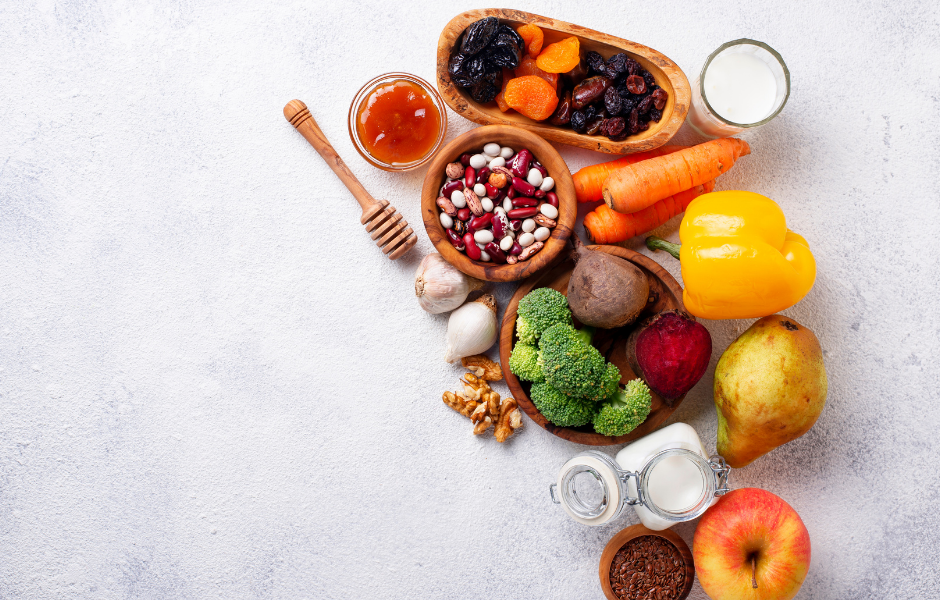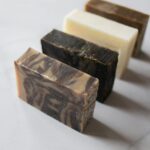
Join 130k subscribers and get the best of the week, straight to your inbox.
Healing leaky gut was one of the most stressful and transformative journeys of my life. The constant discomfort, bloating, and unpredictable reactions to even the simplest foods felt overwhelming.
It wasn’t just a physical battle; it also took a toll on my mental and emotional well-being, affecting my energy, mood, and even my social life. At its worst, I struggled to enjoy meals with friends and family, always worried about how my body would react.
Through countless hours of research and consulting with experts, I learned that leaky gut, also known as intestinal permeability, can be triggered by factors like poor diet, stress, certain medications, and underlying conditions. However, I also discovered that with the right approach, strong gut health is achievable.
Read this blog to find the five key strategies that helped me repair my gut lining, restore balance, and regain control of my health. These steps aren’t just backed by personal experience but are also supported by science, making them practical and effective for anyone on a similar journey.
Key Points Summarized:
- Gut-Healing Diet: Eliminate gluten, dairy, processed foods, and sugar; incorporate bone broth, fermented foods, high-fiber foods, and healthy fats.
- Probiotics and Prebiotics: Use high-quality probiotic supplements and consume prebiotic foods like garlic, onions, and bananas to support gut health.
- Stress Management: Practice mindfulness, meditation, regular exercise, and ensure adequate sleep to reduce stress and support gut healing.
- Gut-Supportive Supplements: Include L-Glutamine, digestive enzymes, omega-3 fatty acids, and zinc to repair the gut lining and reduce inflammation.
- Consistency and Patience: Track progress, seek support, and celebrate small victories to stay motivated and achieve long-term gut health improvement.
Understanding Leaky Gut
Before diving into the strategies, it’s crucial to understand what leaky gut is and how it impacts your overall health. Leaky gut, medically known as increased intestinal permeability, occurs when the tight junctions in the lining of your small intestine become compromised.
This damage allows harmful substances like undigested food particles, toxins, and bacteria to escape into your bloodstream, triggering an immune response and widespread inflammation.
The symptoms can vary but often include:
- Bloating and gas
- Food sensitivities
- Fatigue and low energy
- Joint pain and stiffness
- Skin issues such as eczema and acne
- Digestive discomfort, including diarrhea or constipation
Living with these symptoms was one of the most challenging periods of my life. I remember constantly feeling fatigued despite getting a full night’s sleep, dealing with breakouts that affected my confidence, and struggling to enjoy meals due to unpredictable digestive issues. It felt like my body was working against me, and finding relief seemed impossible at times.
What I learned is that leaky gut syndrome doesn’t just affect your digestion, it can also lead to systemic inflammation, which has been linked to autoimmune conditions, mood disorders, and even chronic diseases.
However, the good news is that with the right approach, healing leaky gut is entirely possible. By identifying triggers, making key dietary and lifestyle changes, and supporting my gut health, I was able to repair my intestinal lining and significantly improve my overall well-being.
The 5 Rs of Healing My Leaky Gut Journey
Below are my five Rs that helped heal my leaky gut.
R1. Removing Harmful Food and Adopting a Diet to Support Healing Leaky Gut

One of the most transformative steps in healing my leaky gut was adopting a gut-healing diet. I quickly realized how significant of a role food plays in either aggravating or soothing the gut lining. I made intentional dietary changes, eliminating harmful foods and incorporating nutrient-rich, gut-supportive ones. Therefore, I noticed a remarkable improvement in my symptoms.
Foods to Avoid
The first step was identifying and removing foods that could worsen my condition. Here’s what I eliminated:
- Gluten: Found in wheat, barley, and rye, gluten is known to trigger inflammation and damage the gut lining, especially in individuals with sensitivities or autoimmune conditions.
- Dairy: Surprisingly, I discovered that even small amounts of dairy, hidden as fillers in about 70% of medications, were aggravating my symptoms. Many people with leaky gut struggle to digest lactose and casein, making dairy a common irritant.
- Processed Foods: These are loaded with additives, preservatives, and artificial ingredients that can irritate the gut lining and disrupt the balance of beneficial gut bacteria.
- Sugar and Artificial Sweeteners: Excess sugar fuels harmful gut bacteria and yeast, while artificial sweeteners can disrupt the gut microbiome.
Foods to Include
After eliminating these triggers, I focused on adding nutrient-dense, gut-healing foods:
- Bone Broth: This was my go-to for soothing my gut. Bone broth is packed with collagen and amino acids like glutamine, which are known to repair and strengthen the intestinal li.
- Fermented Foods: Probiotic-rich foods like sauerkraut, kimchi, kefir, and miso became staples in my diet. They helped restore my gut microbiome and improve digestion.
- High-Fiber Foods: Incorporating a variety of vegetables, fruits, nuts, and seeds provided prebiotics, which feed beneficial gut bacteria and promote a balanced microbiome.
- Healthy Fats: Anti-inflammatory fats like avocado, olive oil, and coconut oil were a game-changer. Not only did they help reduce inflammation, but they also supported overall gut health.
Making this shift wasn’t easy; it required me to completely rethink how I approached food. I had to learn to read labels carefully, cook more meals at home, and plan my snacks in advance. At first, it felt overwhelming, but within weeks, the changes were undeniable. My bloating subsided, my energy levels improved, and I had fewer digestive issues.
2. Repopulating Probiotics and Prebiotics
Probiotics and prebiotics were pivotal in my leaky gut healing journey. Probiotics are the beneficial bacteria that help restore and maintain a healthy gut microbiome, while prebiotics are non-digestible fibers that serve as food for these good bacteria. Together, they create a synergistic effect that supports gut health and intestinal repair.
Probiotics
One of the first changes I made was incorporating a high-quality probiotic supplement into my daily routine. By “high-quality,” I mean one that was pharmacist-recommended and tailored to my needs. Since I’m lactose intolerant, I sought advice from a trusted compound pharmacy, Madison Drugs, which provided me with a dairy-free, multi-strain probiotic.
In addition to the supplement, I began consuming probiotic-rich foods regularly:
- Yogurt (non-dairy): A fantastic source of live cultures for gut health.
- Kefir: Another probiotic powerhouse, available in non-dairy options.
- Fermented Vegetables: Foods like sauerkraut, kimchi, and pickles added diversity to my microbiome.
Within weeks of adding probiotics to my routine, I noticed less bloating and improved digestion, which motivated me to stay consistent.
Prebiotics
While probiotics introduce beneficial bacteria, prebiotics help these bacteria thrive. I intentionally added prebiotic-rich foods to my diet to support the growth of these gut-friendly microbes:
- Garlic and Onions: These are rich in inulin, a type of prebiotic fiber known to nourish beneficial bacteria.
- Asparagus and Leeks: Both are excellent sources of prebiotic fibers and easy to incorporate into meals.
- Bananas: Slightly green bananas provide resistant starch, which acts as a powerful prebiotic.
Adding these foods wasn’t difficult, as they fit seamlessly into my meals. For example, I’d roast asparagus as a side dish, add leeks to soups, or snack on green bananas for a quick energy boost.
The Impact
Combining probiotics and prebiotics transformed my gut health. I felt less bloated, more energized, and even experienced improved mental clarity. This combination played a critical role in restoring balance to my gut microbiome and reducing the inflammation that was fueling my leaky gut symptoms.
3. Rebalancing Life by Managing Stress

Chronic stress disrupts the gut microbiome and contributes to intestinal permeability, making it harder for the gut lining to recover. To truly focus on healing leaky gut, I knew I had to prioritize managing my stress levels, and doing so made a huge difference in my overall progress.
Loved this reflection?
Join The Now Edit — my weekly letter for women reimagining how they live, work, and show up in the world.
Soulful storytelling. Gentle Strategy. Real Tranformation.
By signing up, you’re agreeing with our terms and conditions.
Mindfulness and Meditation
One of the most impactful tools in my stress management journey was practicing mindfulness and meditation. Stress had taken a significant toll on my gut health, so I began incorporating just 10 minutes of mindfulness daily; you can add this to your morning routine. Simple practices like deep breathing and guided meditations helped me feel calmer and more present, which significantly reduced my stress levels.
Regular Exercise
Another essential part of managing stress and healing leaky gut was regular physical activity. While I recently took up CrossFit for a more intense workout, I found that gentler forms of exercise, such as yoga, walking, and light strength training, also worked wonders for reducing stress. Physical activity lowers cortisol, reduces inflammation, and promotes better digestion.
Even on low-energy days, I made it a priority to take a 20-minute walk outdoors. This simple habit supported my mental well-being and actively contributed to my progress in healing my leaky gut.
Adequate Sleep
Sleep was a non-negotiable element of my leaky gut healing journey. Poor sleep not only worsened my stress levels but also intensified my gut symptoms. To support both my gut and overall health, I committed to getting 7-8 hours of quality sleep every night.
To create a relaxing bedtime routine, I:
- Avoided screens an hour before bed.
- Enjoyed a cup of chamomile tea to relax.
- Read a light book to calm my mind.
The Results
By prioritizing stress management as part of my plan for healing leaky gut, I saw incredible changes. My digestion improved, I felt calmer, and I had more energy to focus on other lifestyle changes. The connection between stress and gut health is undeniable. Managing stress not only sped up my recovery but also helped me regain balance in my life.
4. Repairing Damage with Gut-Supportive Supplements
I introduced specific supplements to support healing my leaky gut. These supplements provided essential nutrients and compounds that helped repair my gut lining, reduce inflammation, and improve overall gut health. Here’s what I used and how they worked:
L-Glutamine for Leaky Gut Syndrome
L-Glutamine, a vital amino acid, was one of the most effective supplements I used for healing leaky gut syndrome. Known for its role in maintaining the integrity of the gut lining, L-Glutamine helped repair the intestinal barrier and significantly reduced my symptoms.
Taking it daily allowed me to feel noticeable improvements in my digestion and overall health. Research confirms that L-Glutamine can reduce intestinal permeability, which is critical for leaky gut recovery.
Digestive Enzymes for Gut Support
Digestive enzymes played a crucial role in my gut healing process. They assist in breaking down food and improving nutrient absorption, which is especially important when your gut is compromised.
Including a high-quality digestive enzyme supplement in my routine ensured my body could properly process the food I was eating, minimizing stress on my digestive system. Proper digestion is a key step in healing leaky gut and reducing inflammation.
Omega-3 Fatty Acids to Reduce Inflammation
Omega-3 fatty acids, well-known for their anti-inflammatory properties, were another supplement I relied on heavily. Chronic inflammation contributes to conditions like leaky gut syndrome, so reducing it is essential for long-term healing.
Omega-3s not only helped improve my gut health but also supported my immune system. They’re also known to promote a balanced gut microbiome, which is critical for sustained results.
Zinc for Gut Repair
Zinc was another indispensable part of my supplement routine. It supports immune function and repairs the gut lining, making it a valuable tool in the fight against leaky gut syndrome. Including zinc in my regimen helped reduce intestinal permeability and reinforced my gut barrier. Studies show that zinc supplementation can significantly improve gut health and reduce symptoms associated with leaky gut.
If you’re considering supplements like L-Glutamine for leaky gut syndrome, digestive enzymes, or omega-3 fatty acids, consult with a healthcare professional to ensure they’re right for you. This multifaceted approach allowed me to regain control of my health and repair my gut lining effectively.
5. Remaining Consistent and Patient
One of the most important lessons I learned during my journey to heal leaky gut syndrome was the critical role of consistency and patience. Healing the gut is not a quick fix; it requires time, dedication, and a willingness to adapt along the way.
I quickly realized that certain foods and habits triggered inflammation in my gut, which was both frustrating and discouraging. To take control of my progress, I implemented strategies that kept me accountable and motivated throughout the process.
Tracking Progress with a Journal
Early on, I decided to keep a journal to document my body’s reactions to different foods and supplements. This was a game-changer. Every day, I tracked my meals, symptoms, and how I felt physically and emotionally. Over time, I began to notice patterns, certain foods consistently caused inflammation and discomfort, while others helped me feel better.
Keeping a journal also served as a source of encouragement. During moments of frustration, I could look back and see how far I had come, even if the improvements were gradual. Journaling is a highly recommended practice for anyone tackling leaky gut syndrome, as it provides invaluable insights and keeps you focused on your goals.
Seeking Professional Help and Support
Navigating leaky gut syndrome on my own felt overwhelming at times, so I sought help from professionals. Acupuncture and Integrative Health services were particularly beneficial. These holistic approaches not only supported my gut healing process but also addressed the stress and tension that often accompanies chronic conditions.
Additionally, joining online communities and forums proved to be a lifeline. Sharing my journey with others who understood what I was going through made me feel less isolated.
Celebrating Small Wins to Stay Motivated
Healing my gut felt like a marathon, not a sprint. Celebrating small victories became a crucial part of maintaining a positive mindset. Whether it was a day without bloating, identifying a trigger food, or simply sticking to my plan, I made it a point to acknowledge these wins. These small moments of success reminded me that progress, no matter how incremental, was still progress.
Consistency is the Key to Healing
If there’s one thing I can emphasize to anyone working to heal leaky gut, it’s the importance of consistency. Healing your gut lining and restoring balance in your microbiome doesn’t happen overnight. There were days when I felt like I wasn’t making progress, but staying consistent with my diet, supplements, and stress management routines ultimately paid off.
Looking back, my journey to heal leaky gut syndrome taught me invaluable lessons about self-awareness and perseverance. By tracking my progress, seeking professional help, and celebrating small wins, I was able to rebuild my health step by step. For anyone struggling with leaky gut, remember that consistency and patience are your greatest tools for success.
Altering Leaky Gut Diet According to Special Needs
When it comes to healing leaky gut syndrome, I’ve learned that a one-size-fits-all approach simply doesn’t work. Adapting your diet to fit your unique health needs and preferences is essential for effective recovery. Collaborating with a healthcare provider or a registered dietitian is a vital step for this purpose. Here’s what I discovered while tailoring my gut-healing diet:
Celiac Disease
Since gluten can be a significant trigger for leaky gut, individuals with celiac disease must strictly avoid gluten-containing foods like wheat, barley, and rye. I found it helpful to focus on whole, naturally gluten-free grains such as quinoa, rice, and certified gluten-free oats.
However, gluten-free doesn’t always mean “gut-friendly.” Many gluten-free products are made with legume flours, like chickpeas or mung beans, which can be problematic for some individuals with sensitive guts.
Vegetarian Diets
As someone who experimented with vegetarian options during my journey, I learned the importance of finding plant-based proteins that don’t irritate the gut. Legumes like lentils and beans, which are common vegetarian staples, often caused discomfort for me. Instead, I incorporated sprouted seeds like chia, flaxseeds, and hemp seeds for essential nutrients.
Managing High Cholesterol
If you’re managing high cholesterol alongside leaky gut, it’s essential to limit saturated fats to less than 7% of your daily calorie intake. I focused on incorporating healthy fats like avocados, olive oil, and fatty fish. These fats not only promote cardiovascular health but also have anti-inflammatory properties that support gut healing. Regular check-ins with my healthcare provider helped ensure I was on the right track.
Hypertension
Since hypertension runs in my family, I made it a priority to reduce sodium intake. I limited my daily sodium to 1,500–2,300 mg by avoiding processed foods and flavoring my meals with herbs and spices instead of salt. Incorporating potassium-rich foods, such as bananas and leafy greens, also supported my blood pressure while being gentle on my gut.
IBS and IBD Considerations
For those with IBS or IBD, a low-FODMAP diet can be incredibly effective. During my journey, I worked with a dietitian to temporarily eliminate certain fermentable carbohydrates and reintroduce them gradually to pinpoint my triggers.
Digestive Sensitivities
Raw fruits and vegetables initially caused me discomfort, which is common among individuals with gastrointestinal sensitivities. Cooking methods like steaming, roasting, and boiling make these foods more tolerable while retaining their nutrients.
Fermented Foods
Although fermented foods like kimchi, sauerkraut, and kombucha are praised for their probiotic benefits, I quickly learned that they can cause digestive discomfort for some. Starting with small portions allowed my gut to adapt. For variety, I also added probiotic-rich yogurt and a high-quality supplement to my routine, which were gentler alternatives on days when my gut felt sensitive.
Introducing Fiber Gradually
Fiber is crucial for gut health, but adding too much too quickly can backfire. I gradually increased my fiber intake, focusing on foods like berries, leafy greens, and chia seeds. The Dietary Guidelines for Americans recommend 28 grams of fiber for a 2,000-calorie diet, and taking it slow helped my digestive system adjust without bloating or discomfort.
How to Know a Leaky Gut is Healing?
Below are a few signs that may suggest that your leaky gut is healing:
Reduced bloating and gas: Less discomfort in the digestive tract as inflammation reduces.
Improved digestion: More regular bowel movements, less constipation or diarrhea.
Less food sensitivity: Reduced reactions to foods that previously triggered discomfort.
Improved skin: Fewer breakouts, rashes, or eczema, as the gut’s health is directly linked to skin.
Increased energy: When the gut is healed, nutrient absorption improves, leading to more energy.
Final Words
Healing my leaky gut was a challenging and stressful journey, but it was also incredibly rewarding. Through dietary changes, probiotics and prebiotics, stress management, gut-supportive supplements, and staying consistent,
I was able to transform my health and regain my quality of life. If you’re struggling with leaky gut or digestive issues, I encourage you to explore these strategies and find what works best for you. Remember, healing takes time, but with dedication and perseverance, you can achieve better health and well-being.
For more tips and insights on gut health and wellness, be sure to check out our other blog posts and join our community of health enthusiasts!
Suggested articles:
- Enjoy Your Breakfast with Fruits and Veggies
- Explore Benefits of Teas
- High Protein Snack Recipes – A Must Try!
What is the fastest way to heal a leaky gut?
Healing a leaky gut requires a multifaceted approach, but some of the fastest and most effective steps include:
Eliminating trigger foods: Avoid processed foods, sugar, gluten, dairy, and other inflammatory foods that may exacerbate gut permeability.
Probiotics: Taking high-quality probiotics helps replenish good bacteria, restoring balance in the gut microbiome.
Bone Broth: Rich in collagen and amino acids like glutamine, bone broth can support gut healing.
Anti-inflammatory foods: Incorporate gut-healing foods like turmeric, ginger, and leafy greens.
Supplements: Use L-glutamine, zinc, and digestive enzymes to strengthen the gut lining and improve digestion.
Stress management: Chronic stress can worsen leaky gut, so practicing relaxation techniques like meditation, yoga, or deep breathing helps reduce inflammation.
What is the #1 substance to help heal the gut?
L-glutamine is widely regarded as the #1 substance to help heal the gut. This amino acid is essential for maintaining the integrity of the gut lining and is often used to support leaky gut recovery. It helps reduce intestinal permeability and promotes the repair of damaged tissue.
Zakia Lott
More Like This:









One Response
Pretty! This was a really wonderful post. Thank you for your provided information.